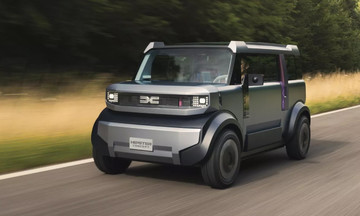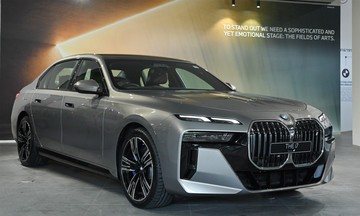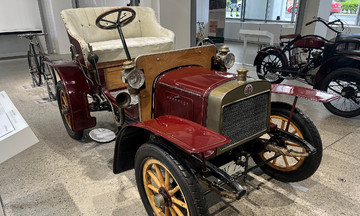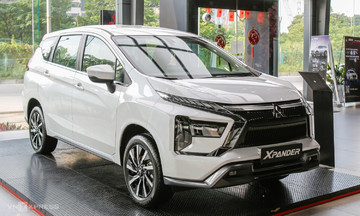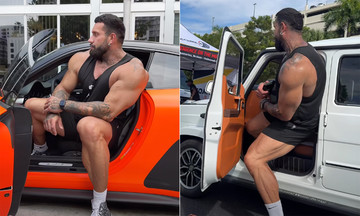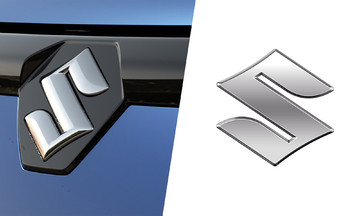In addition to home charging and public charging stations, and removable batteries for flexible charging, electric motorcycle batteries in Vietnam now have another option attracting investment from many brands: battery swapping stations. This is considered the optimal solution for owners who travel long distances or find it inconvenient to charge at home.
The race to build battery swapping stations
Battery swapping stations for electric motorcycles are not new in Vietnam. VinFast deployed this model in 4/2020 for the Ludo, Impes, and Klara S lines. Customers who purchased a motorcycle with a battery subscription could swap batteries at showrooms, service centers, and Vinmart stores (no longer available) for 25,000 VND per battery. For the Klara S with two batteries, the cost was 50,000 VND. At that time, VinFast did not specify the number of swapping stations.
After more than two years, in 11/2022, the Vietnamese automaker discontinued the battery swapping service due to low demand. VinFast reported that very few people used the service, with only a few dozen swaps nationwide each month.
After years of discontinuation, VinFast (through its charging station development partner V-Green) is returning to this model as electric motorcycle sales increase. Simultaneously, the number of commercial service users who want quick battery swaps to continue working, rather than waiting for hours, has also increased.
In October, VinFast will install the first 1,000 stations, reaching 50,000 by the end of the year. The goal is to complete the nationwide battery swapping station system with approximately 150,000 stations within the next three years. VinFast is adding the suffix "Max" to products with the battery swapping feature. The first model launching in October is the Evo Max, priced at 20 million VND. Following that are the Feliz, Verox, and Drift, priced at 24.9 million VND, 33.9 million VND, and 39.9 million VND, respectively.
Each VinFast Max battery has a capacity of 1.5 kWh, a range of 85 km per charge, and a swap cost of 9,000 VND (including charging). The monthly rental fee is 200,000 VND per battery. Users can rent one or two batteries, charge at home, or swap at stations as needed.
In addition to its self-built locations, VinFast is also partnering with FPT Retail (currently at the memorandum of understanding (MOU) stage) through franchising or leasing locations for battery swapping stations. By collaborating with partners, VinFast can leverage prime locations on major roads, making it easier for users to find stations.
Besides VinFast, Selex Motor, a Hanoi-based Vietnamese electric motorcycle company, is also heavily investing in battery swapping stations. Unlike VinFast's intermittent operation, Selex has been deploying stations since 2023 (after research and development starting in 2021) and continues to do so. The number of swapping stations reached approximately 100 by the end of August.
The company reports over 523,000 battery swaps to date. Within the next three years, Selex aims to build around 10,000 swapping stations nationwide with its partners.
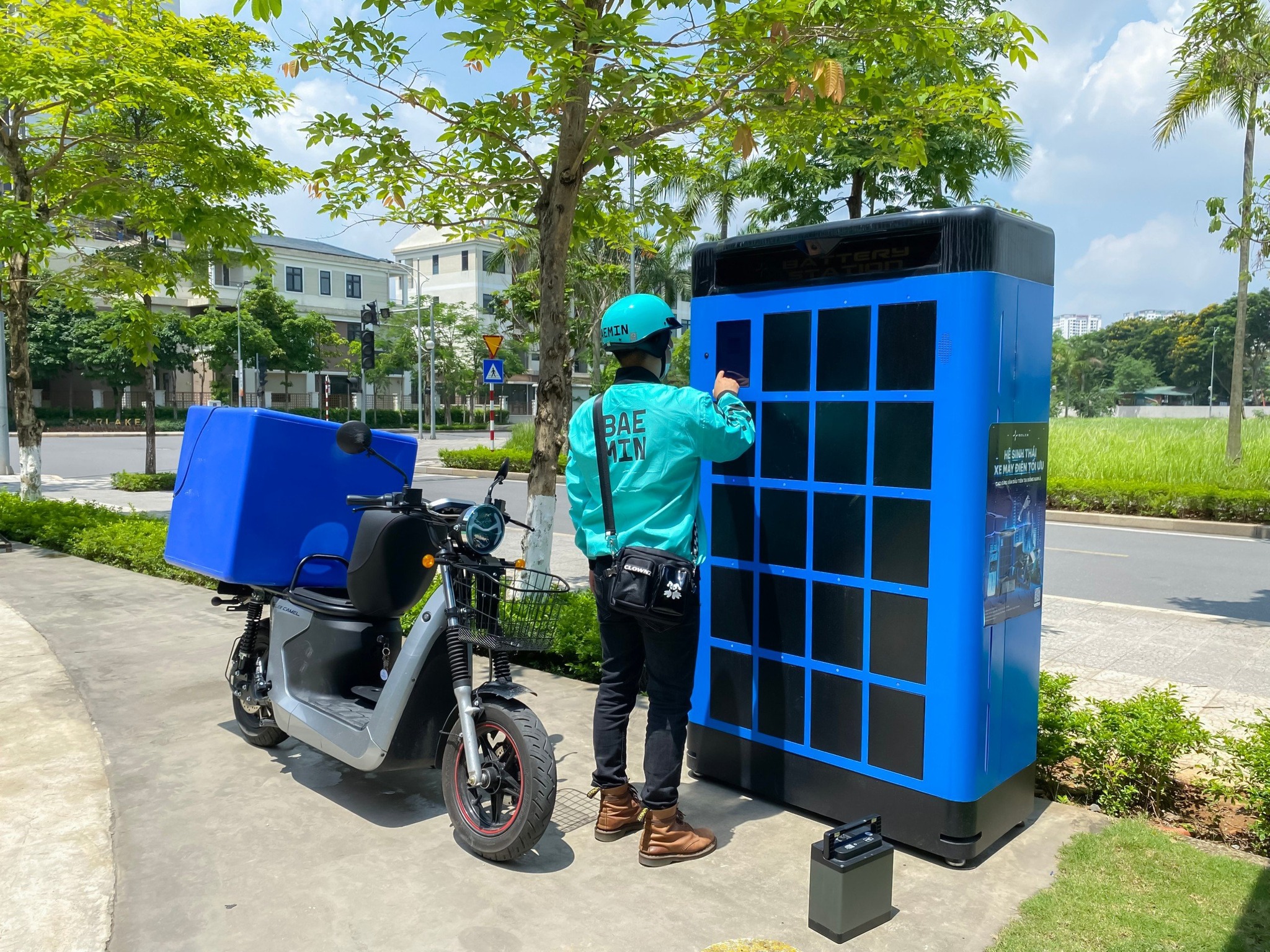 |
A Selex electric motorcycle battery swapping station in Hanoi. Photo: Selex Motor |
A Selex electric motorcycle battery swapping station in Hanoi. Photo: Selex Motor
Selex's market approach focuses on products for commercial service users who need to optimize charging time for continuous travel. Therefore, the company views battery swapping stations as a key solution to persuade users to switch from gasoline to electric, in addition to lower operating costs. Sources from VnExpress indicate that Selex is promoting cooperation with Petrolimex to expand its nationwide battery swapping network. Two swapping stations at Petrolimex gas stations are already operational in Hanoi.
Currently, users of Selex's Camel 1 and Camel 2 can swap batteries for 8,000 VND per swap. Each battery has a capacity of 20 Ah, weighs about 7.5 kg, and offers a range of 50 km. Selex offers various battery rental packages tailored to different user groups. For individual users renting one to three batteries, with monthly mileage of 200-600 km, the monthly rental fee ranges from 135,000-405,000 VND. Renting three batteries with unlimited mileage costs nearly 3.2 million VND per month.
Honda, the leading player in the Vietnamese motorcycle market, also started its battery swapping service in mid-July, but on a smaller scale. Currently, only the Honda CUV e: offers battery swapping, and 18 dealerships in Hanoi, Da Nang, and Ho Chi Minh City have been selected by the Japanese manufacturer for this model.
Honda is lagging behind competitors in deploying electric motorcycles and battery swapping stations. However, the company has standardized its battery technology under the name Mobile Power Pack e: (MPP), allowing multiple products to share the same battery. This platform is crucial for Honda to rapidly expand its swapping network, launch multiple products simultaneously, and facilitate customers' transition to electric motorcycles.
Another motorcycle company, TMT, has also announced its participation in developing battery swapping stations. In July, the company said it would introduce five electric motorcycle models by the end of 2025, along with plans to invest in a public charging and swapping station network. However, the number of stations, specific provinces and cities for initial deployment, and the operational timeline remain unclear.
TMT's upcoming swapping stations will hold five to 72 batteries per station. The company also mentioned locating stations at existing gas stations for easy access and user convenience.
A solution to boost electric motorcycle demand
In its strategic direction for electric motorcycle development, with a vision towards 2030 and beyond to 2050, Honda identifies MPP technology and battery swapping stations as key to expanding its product range and encouraging users to adopt electric motorcycles. The three advantages of swapping stations address fundamental obstacles for electric motorcycles: fast charging time, battery performance control, and increased range.
Selex's swapping station system in Vietnam, through a dedicated app, allows users to swap low/dead batteries for fully charged ones within minutes. Conventional home charging takes about four to six hours, depending on the motorcycle model.
Phuoc Nguyen, CEO of Selex Motor, believes that instead of user responsibility, batteries swapped at stations are quality-controlled by the manufacturer to maintain performance. Quick and continuous swapping optimizes user mobility based on daily mileage.
"The challenge is how to distribute the swapping station network logically and conveniently for users," Nguyen said. "The manufacturer takes care of the complex aspects of battery quality assurance, maintenance, and recycling."
Battery swapping stations primarily target individual and corporate customers (fleet owners) with high mobility needs, especially those in ride-hailing and delivery services with daily ranges of 200-300 km or more. They also cater to owners who find it inconvenient to charge at home or in apartments due to limited charging sources or space. For individuals with lower daily mileage, typically under 60-70 km, home charging remains a more suitable option.
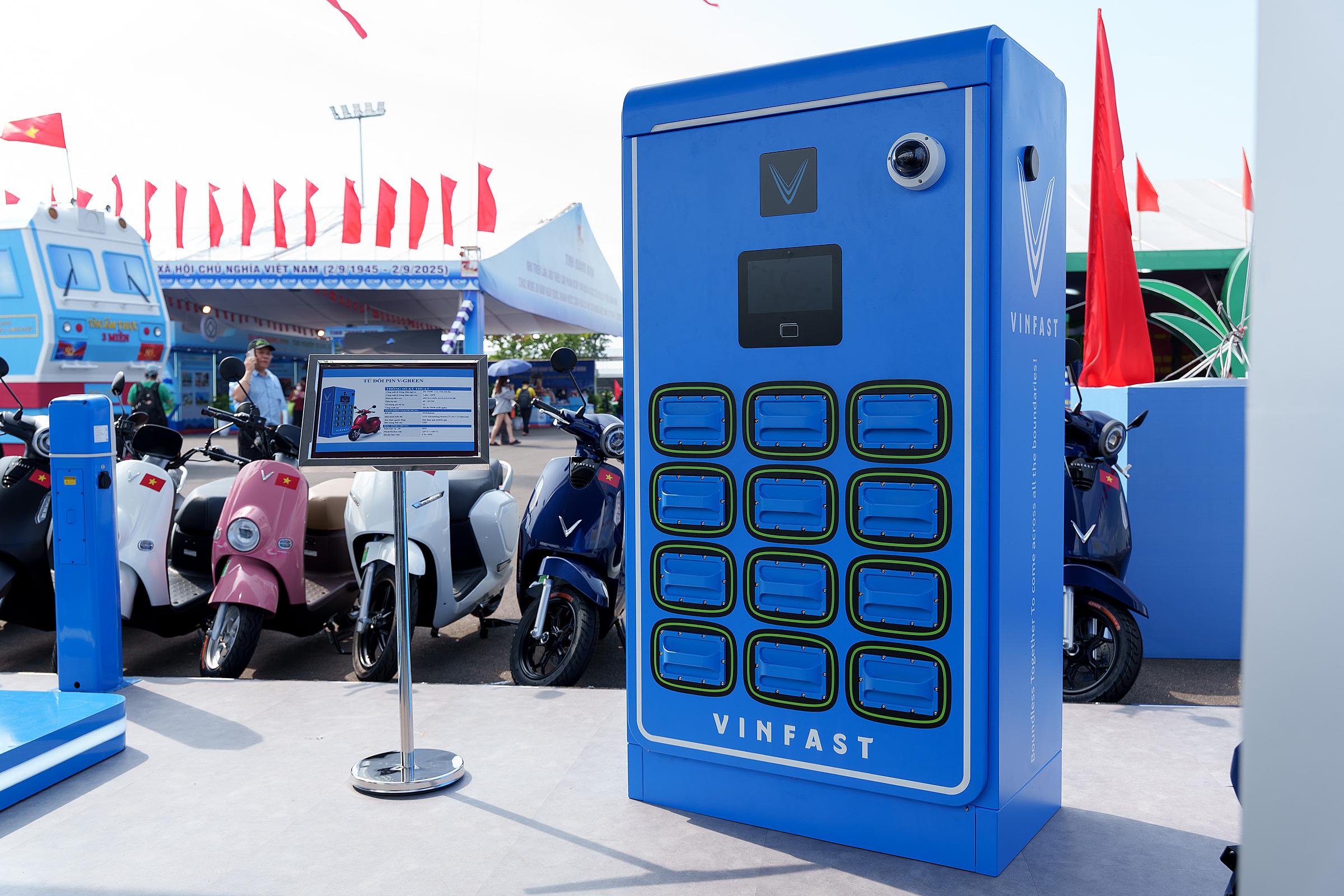 |
VinFast's battery swapping station (prototype) displayed at the 80 Years of Independence - Freedom - Happiness (A80) exhibition in Hanoi on 28/8. Photo: Luong Dung |
VinFast's battery swapping station (prototype) displayed at the 80 Years of Independence - Freedom - Happiness (A80) exhibition in Hanoi on 28/8. Photo: Luong Dung
Battery swapping station models exist globally, for example, in India, Taiwan, and China, some of the world's largest motorcycle markets. An expert in electric vehicle charging station development in Ho Chi Minh City believes that, similar to these major markets, the battery swapping model will boost electric motorcycle demand in Vietnam. However, another crucial aspect is standardized batteries across brands.
"If each manufacturer produces different batteries, only that manufacturer's users can swap batteries at their stations," the expert added. "This limits the flexibility of wide-scale battery swapping. It's similar to car chargers needing a unified standard so users of different car brands can charge at the same station."
In Japan in 2019, four major motorcycle manufacturers – Honda, Yamaha, Suzuki, and Kawasaki – collaborated on a shared electric motorcycle battery. By 2022, this group partnered with Japanese oil and gas giant Ineos to form Gachaco, a company focused on building and expanding battery swapping stations and providing Battery as a Service (BaaS).
In Vietnam, Selex Motor is currently one of the few companies producing batteries for other brands. Several products from Son Ha, DK Bike, and Dibao currently use Selex batteries, and their users can also swap batteries at Selex-operated stations.
Thanh Nhan




